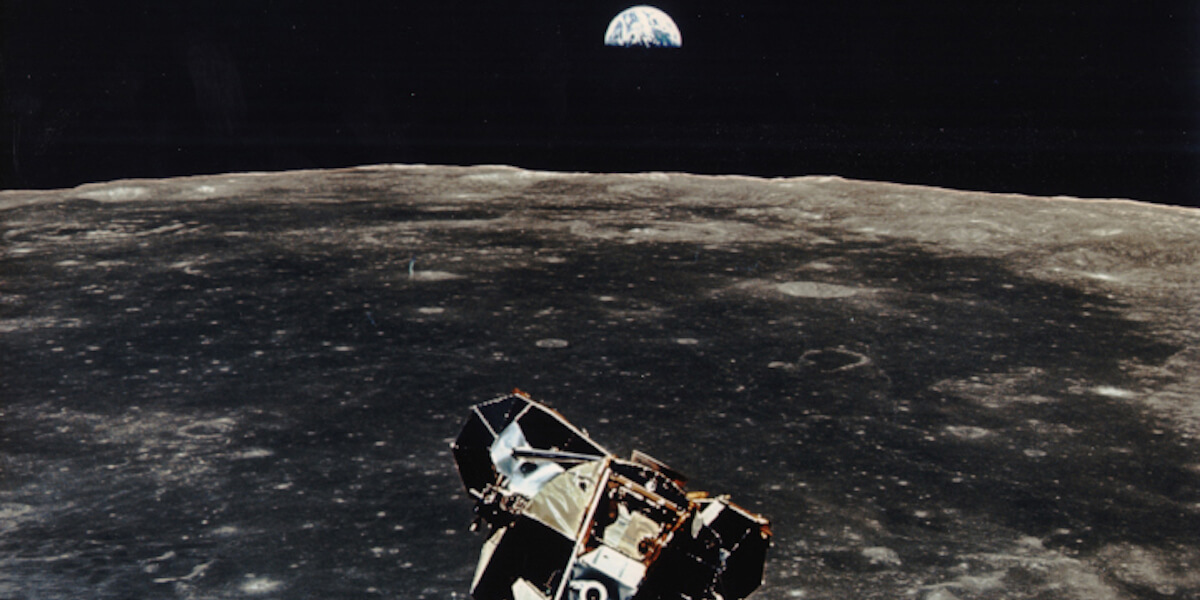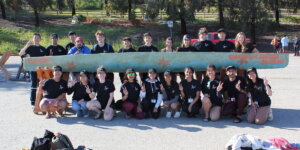
Apollo 11 leaving the surface of the Moon on on July 21, 1969. PHOTO/NASA
USC students are among five finalists in the NASA Revolutionary Aerospace Systems Concepts – Academic Linkage (RASC-AL) Competition focusing on the theme of south pole multi-purpose rover design. The team’s design “Ranger” supports both robotic and human exploration, allowing for a two-phase mission to explore the lunar south pole and collect data and samples of lunar ice and lunar rocks. In particular, the Ranger offers innovations including an adaptable power system, ability to operate even during periods of darkness, omnidirectional crawlers and ability to investigate kilometers of unexplored terrain without needing to stop and recharge as long as there is sunlight. As such, it
The NASA RASC-AL competition is a design project that seeks innovative ideas for addressing future NASA missions from university-level engineering students and faculty. The USC team, led by USC Viterbi master’s student Hao Tang and advised by Professor in the Department of Astronautical Engineering (ASTE) and Director of the USC Space Engineering Research Center David Barnhart, will complete the final stage of the competition during a 50 minute live, virtual presentation to an audience of scientists, engineers and managers from academia, industry and government.
The USC team also includes master’s ASTE students Alvin Chan, Jeirus Jose, Joey Lyon, Neel Sabnis and Shobhita Rajashekar; undergraduate ASTE student Takuo Imoto, undergraduate student in the Ming Hsieh Department of Electrical and Computer Engineering Frida Hill; and undergraduate student in the Department of Aerospace and Mechanical Engineering Mohammed Usama.
Ranger is one of 15 projects selected to participate in the 2020 RASC-AL Forum. For a detailed digital poster of the design, please see the NASA RASC-AL site.
The top two scoring teams will be awarded a $6,000 travel stipend to present condensed versions of their RASC-AL presentations at the ASCEND 2020 Conference in Las Vegas, November 16-18, 2020.
Published on June 16th, 2020
Last updated on June 16th, 2020








